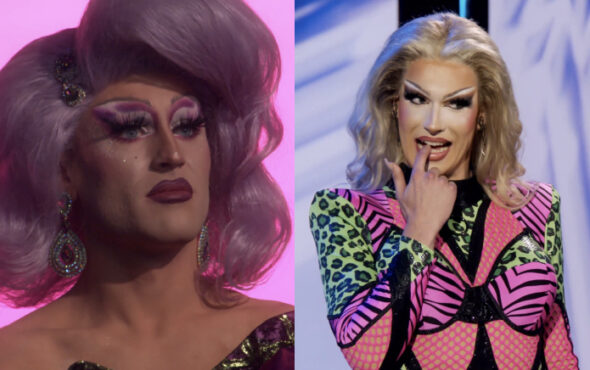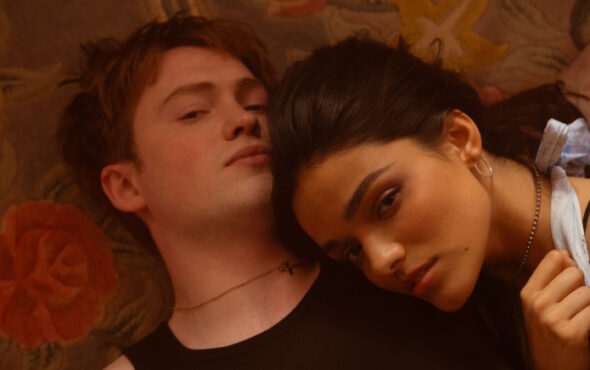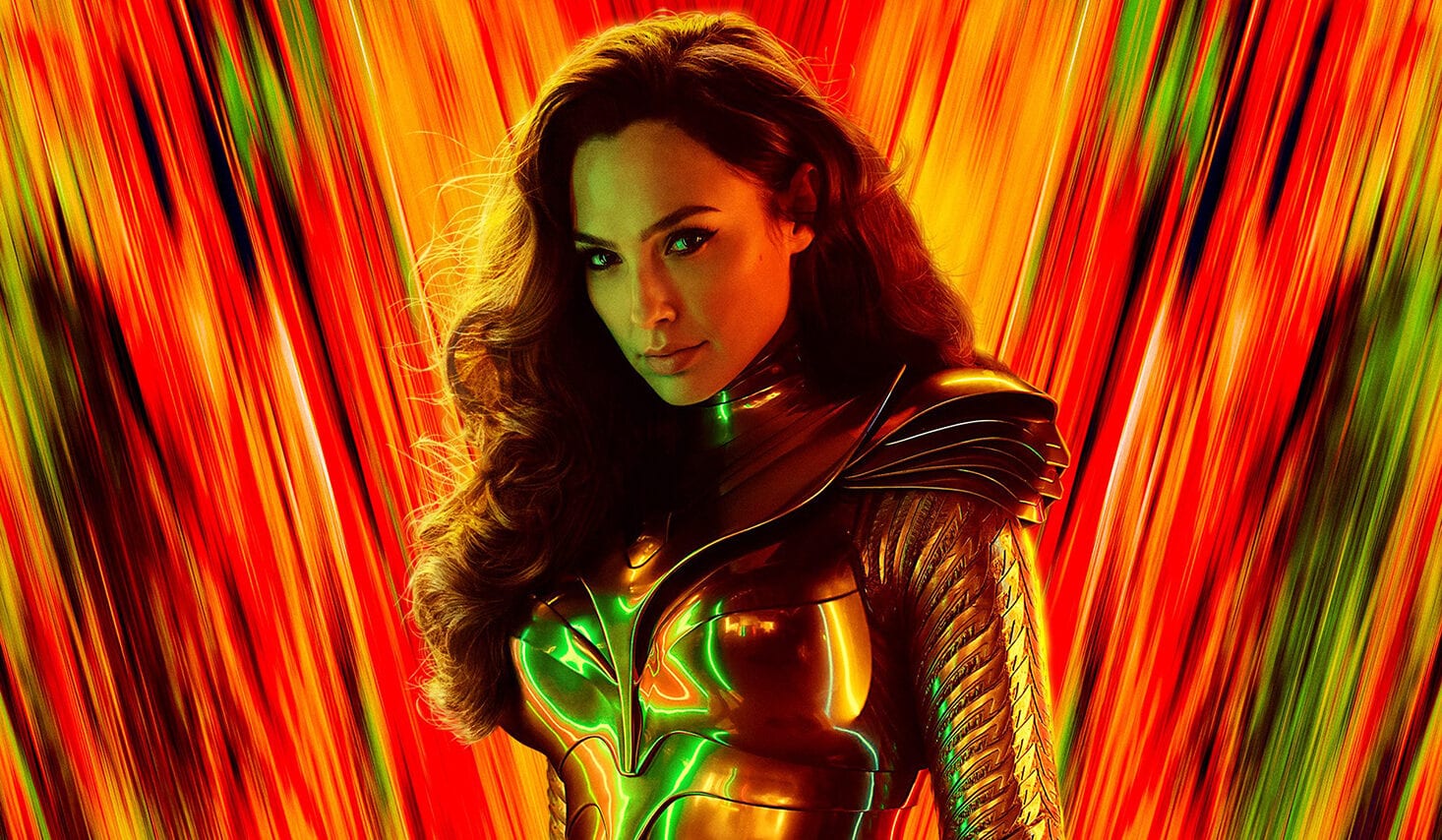
The year is 1984. Parts of Australia have just decriminalised homosexual acts between consenting adults. In the UK, Chris Smith comes out as the first openly gay member of the House of Commons. At the top of the charts, Bronski Beat are ruling the airwaves with their seminal queer anthem Smalltown Boy. Over at the BRIT Awards, Boy George and Culture Club are celebrating big after winning Best British Single for Karma Chameleon. But deep in the shadows, another queer icon is fighting crime and saving the world.
Wonder Woman 1984 sees DC Comics’ almighty female superhero back for another adventure, this time facing off with two formidable foes during the Cold War. Since the first installment, 2017’s Wonder Woman, Diana Prince (played by Gal Gadot) has got her wits about her after living in human society for quite some time. “In the first movie, we see Diana and she’s the fish out of water, she’s come to the men’s world and everything is new and weird and fresh to her,” Gal Gadot tells us. “By the end of the movie, she only starts to learn about the complexities of humankind. In this movie, we find Diana and she’s wiser, more mature, she’s lonely, she lost all of her team members and she’s not really engaging with anyone else, because it’s only a matter of time before they grow old and she has to say goodbye. So, she’s very guarded and still at the same time, she’s doing the right thing. She’s involved and saves people and tries to do good.”
For generations, Diana Prince has been an icon for queer people. Even before Wonder Woman was confirmed as canonically bisexual in 2016, she stood tall as an anti-masculine figurehead that showcased the power of femininity. Considering her origins on the all-female island of Themyscira, it was given that Diana would consider same-sex couples as the norm. Her upbringing was as queer as they come. So for the Wonder Woman franchise to be such a huge success on the big screen is yet another milestone for LGBTQ+ representation in Hollywood.
To get the inside track on Wonder Woman 1984, we sent our own figurine of female empowerment, Arisce Wanzer, along to interview the cast and director in Los Angeles. You may recognise Arisce’s name from our Trans Goddesses shoot last year, which evoked both scenes of the 1980s and Themyscira’s sisterhood. We truly couldn’t have asked anyone else.
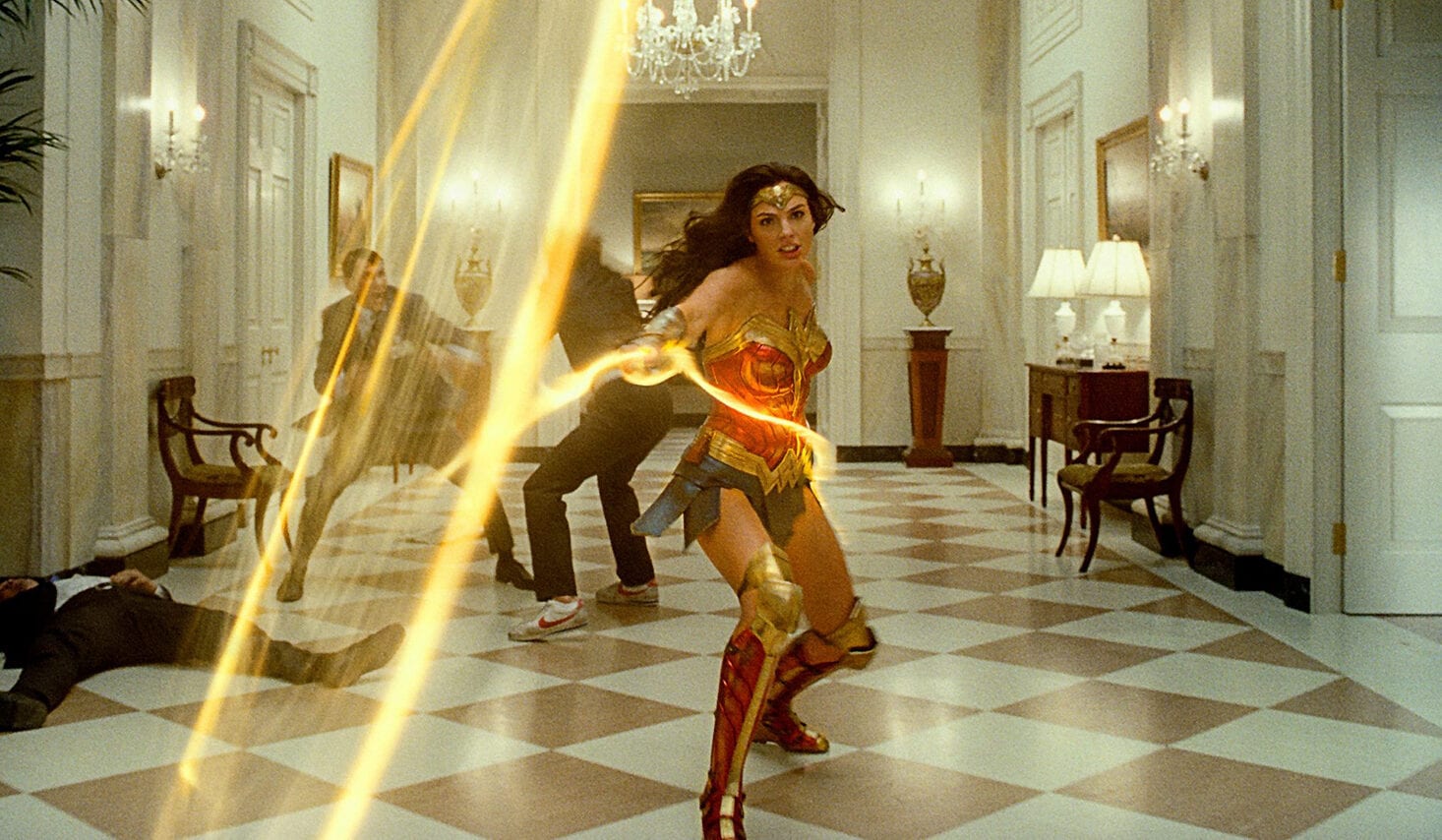
Sitting across the table from Gal Gadot and Kristen Wiig – who plays antagonist Barbara Ann Minerva / Cheetah in this instalment – Arisce started by noting the sheer amount of drag queens who love to embody the superhero for performances. “Why do you think queer people have such an affinity with this genre and with Wonder Woman in particular?” Arisce asks. Gal pauses for a moment. “I’ve never thought about it, but I think that maybe these characters are the embodiment of femininity, and to be a strong woman and to celebrate that and owning it. I don’t know, what do you think?” she bats back. Arisce explains that Wonder Woman has always been one of the more glamorous superheroes, but also seeing how the character develops made her think, ‘I thought like that once too, but now I’m this.’ When it came to the evolution of her character Barbara, Kristen can also see parallels with the queer experience. “With Barbara at the beginning of the movie, she’s really lonely, sad and invisible and she wants to be something that she’s not,” Kristen explains. “People walk by her and don’t talk to her, and because of that she doesn’t know who she is and who to embrace. Then when she meets Diana – and when you meet someone who is supportive and looks at you and says, ‘You’re okay with who you are, and you’re amazing’ – I think Diana looks at Barbara and sees things she wishes she had and she misses. She’s really attracted to Barbara’s sense of humour and how open she is, because she’s been so guarded for so long. Conversely, Barbara looks at Diana like, ‘Oh my god, that’s who I want to be. She is just walking around owning it, and she seems really happy’, and Diana’s looking at Barbara thinking she’s happy. And that’s something we all do, we think people have things we want, and they’re happy, but we’re all struggling with stuff.”
Next, Arsice turns her attention to Chris Pine who is returning as Steve Trevor for this sequel. If you’ve seen the first film, you were most likely as surprised to see Chris return to the franchise as us considering the character was seemingly killed off. But Chris always knew he’d be coming back. “Because I’m friends with Patty Jenkins [writer and director of the films], she made it clear at the end of shooting the first film that she had ideas for the second one. Her mind is always going. I’m sure she’s already working on the third one in her brain. She pretty much set out the general idea of the second one.”
There’s an air of secrecy around Steve Trevor’s revival for WW1984, so Arisce couldn’t delve into it too much. But with Wonder Woman’s position as a blockbuster featuring an LGBTQ+ hero as the lead, she was keen to hear Chris’s thoughts on the current state of queer representation in Hollywood. Back in 2016, Chris played Captain Kirk in Star Trek Beyond, which saw John Cho’s character Hikaru Sulu come out as gay. Arisce posed the question as to whether society is ready to embrace queer characters in blockbuster action movies. “I’d hope so, but we live on the West Coast here in a bubble, and we’re more open than many,” Chris says. “It would be a great time for it. The fact that we had a gay man running for president is pretty cool. There’s no higher authority of office than that in the States, so that says something. But we’re not there yet. Speaking about our current president, there’s a lot of xenophobia, homophobia and other phobias. This is coming from a straight, white man, but it seems to me that there are great movements and positive steps forward. We’re seeing greater representation of people of colour in the voting Academy, and more female directors too.”
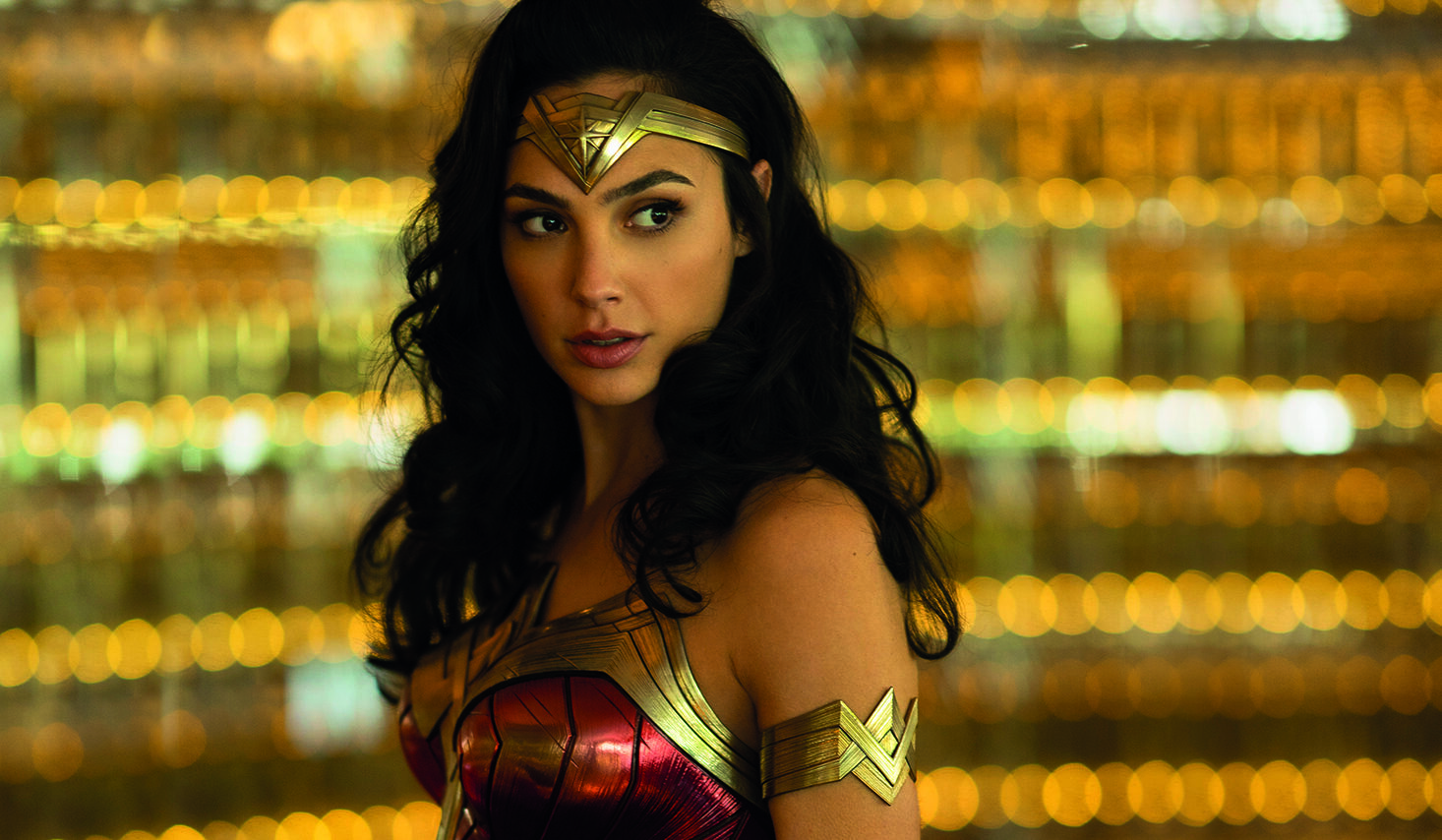
On that last point, Patty Jenkins can be credited for ushering in some progressive change. Wonder Woman was lauded as the first big superhero film with a female lead, and that was made even more almighty by the fact it was written and directed by a woman too. Sitting across from Patty, Arisce asks if she thinks women are getting more opportunities these days. “Absolutely, I see huge progress in the films that are starting to be made since when I went into directing Wonder Woman to now,” says Patty. “I think the idea that other people’s stories can make money and succeed is actually arriving. The idea that you can make a massive movie with a different structure of leadership and cast is great and that will change a lot.”
Gal Gadot agrees, adding: “I think it’s a really positive trend. Not trendy, but a trend. I think that Patty really opened the door for many female filmmakers and to show Hollywood that they can do the work. I’m very happy to see that there are more and more female filmmakers and women starring in huge tentpole movies, because we can bring people to the box office. I don’t think we’re completely there yet, but it’s a good trend and I’m looking forward to more.”
With a franchise as huge and beloved as Wonder Woman, you wouldn’t blame an actor for feeling the pressure when joining the cast. But with Patty Jenkins at the helm, the cast were more than reassured. That was certainly the case for Pedro Pascal who joins this sequel as media businessman and entrepreneur Maxwell Lord. With a name like that, you already know he’s going to be up to no good. Despite being a part of pop culture titans like Game of Thrones and The Mandalorian (which is part of the Star Wars universe), Pedro did feel the pressure stepping into the world of DC Comics. “But what’s so lucky with this experience is that you’re being held by Patty Jenkins,” he tells Arisce. “The franchise, the movie, its producers and directors and stars from the first two create such a safe environment that this is more like some little play I did in New York where it felt like a safe and creative, exploratory experience. It was very weird for that to be the case. It was so endlessly surprising to feel so creatively fulfilled and challenged in a mega-budget, super popular, genre film. And that is a testament to so many things involved – primarily Patty. She loves actors and really wants and demands you bring your best self to it because she’s providing the best experience.” It’s good to hear the power of the female sensibility is in full force behind the camera as much as it is in front of it.
After getting delayed due to the ongoing COVID-19 pandemic, fans are more restless than ever to finally get to see this highly-anticipated sequel – and from the preview footage we’ve seen, we certainly think it will be worth the wait. From high octane action sequences to Kristen Wiig’s take on an iconic villain, via plenty of fun 80s references (Patty even admits to hiding some of her favourite albums of the time in the background), Wonder Woman 1984 is the blockbuster dose of female-empowered escapism we all need this year. You know us by now: we stan a butt-kicking bisexual icon.
Wonder Woman 1984 is in cinemas now in the UK and will be in theatres and available to stream on HBO Max in the US from 25 December.
